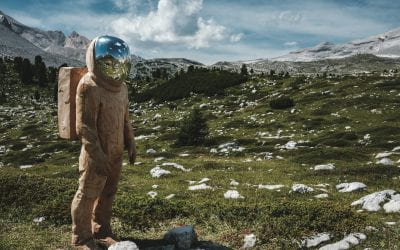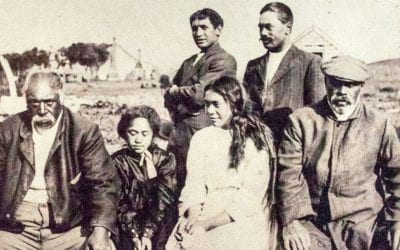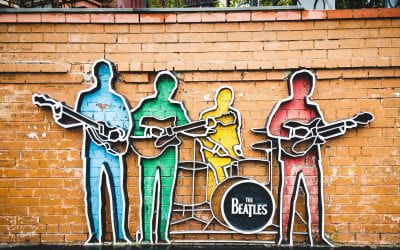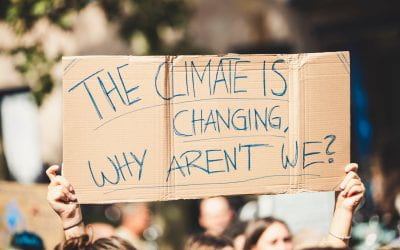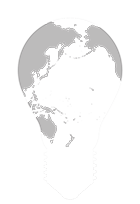
The Big Q
Questions – Ideas – Scholarship – Debates
Project for Public Interest Media

Politics & Society
Sustain: What role can international law play in pursuing climate justice?
Image used is Grand Hall de Justice de Palais by Lybil BER. Used under CC BY-SA 4.0. In June 2025, the International Court of Justice (ICJ) ruled that states do have a legal obligation to both limit their contributions to climate change, and provide restitution for...
The triple Whammy of the Government’s transportation plan
Government’s proposal to hike public transport fares will threaten a triple whammy – compromising our health, planet and economy, writes Maria Armoudian.
Sustain: Are we facing a water crisis?
What is the state of our water? What are the primary challenges to ensuring clean, potable water for generations to come? And what are the politics that either prevent or advance the availability of healthy waterways and drinking water? To answer these questions, Associate Professor Dr Maria Armoudian speaks to Dame Juliet Gerrard, Professor Naresh Singhal, Associate Professor Daniel Hikuroa and Dr Filippo Verre.
Sustain: What role can litigation play in fighting climate change?
European Court of Human Rights, courtroom, 2014 by Adrian Grycuk. Used under CC BY-SA 3.0 PL In recent years, thousands of lawsuits have been filed around the world by private individuals to NGOs and state governments in an attempt to force greater action on climate...
Sustain: What is the link between authoritarianism and climate change?
Despite increasing signs of a climate crisis, false information continues to drive decision-making at the highest level, particularly in countries which have recently taken a turn towards authoritarianism.
What are the health benefits of decarbonising transport?
New research shows potential health benefits from decarbonising transport
Science & Technology
How can we recover the wealth of materials embedded in our electronic waste?
By Benjamin Dekker. Image used is Electronic waste at Agbogbloshie Ghana by Muntaka Chasant, used under CC BY-SA 4.0. Can green chemistry drastically reduce our mining and landfilling needs? Chemists at the University of Auckland are pioneering new methods for dealing...
Sustain: What role can local and traditional ecological knowledge play in fighting climate change?
The UN Convention on Biological Diversity (CBD) has outlined a plan for humanity to live in harmony with nature by 2050. Our cities aren’t going away, so how can we use biodiversity as a building block and work with indigenous technologies to take action? Pauline Herbst talks with international landscape designer and keynote speaker at the World Green Infrastructure Congress 2024, Julia Watson, to answer these questions.
Sustain: How can we deal with the threat posed by microplastics?
From the Antarctic to the deepest depths of the ocean, microplastics are found in increasingly large numbers. These tiny, seemingly inescapable plastics pose a range of threats to human health, animal life and the ecosystems on which we rely. How can we deal with this...
Can marine microbes break down microplastics?
Marine plastic pollution is a massive environmental issue, our new study finds no clear correlation between plastic pollution levels and the production of plastic-degrading enzymes by marine microorganisms.
Is the New Zealand Space Agency doing enough to promote sustainability?
New Zealand’s aerospace sector is growing rapidly, but as latest research shows, it is falling short on addressing urgent sustainability issues because of a perception this would incur short-term costs and slow growth.
Sustain: What role can seaweed farming play in the fight against climate change?
AgriSea CEO Clare Bradley and Tane Bradley (AgriSea CIO) inspect a seaweed harvest on a New Zealand beach. ©AgriSea. With increasing interest in aquaculture as an alternative to land-based agriculture, Dr Pauline Herbst speaks to Prof Andrew Jeffs, from the Institute...
Business & Economics
Sustain: How can we boost the use of climate-friendly technology?
Image used is as solar firmengebaude by ChristofferRiemer. Used under CC BY 3.0 In the face of climate change, people around the world have developed innovative new technologies to mitigate or adapt to its impacts. Despite their work however, adoption has proved more...
Is rooftop solar the solution to New Zealand’s energy woes?
By Stephen Poletti, University of Auckland, Waipapa Taumata Rau; Bruce Mountain, Victoria University (Melbourne); Geoff Bertram, Te Herenga Waka — Victoria University of Wellington. Photo used is Solar on Metal Roof by Wikideas1, used under CC0 1.0 Universal. ...
What’s the truth behind sustainable seafood claims?
Many seafood products sold in New Zealand make environmental claims, but new research shows most of them are too ambiguous and may serve as greenwashing.
Sustain: What role can seaweed farming play in the fight against climate change?
AgriSea CEO Clare Bradley and Tane Bradley (AgriSea CIO) inspect a seaweed harvest on a New Zealand beach. ©AgriSea. With increasing interest in aquaculture as an alternative to land-based agriculture, Dr Pauline Herbst speaks to Prof Andrew Jeffs, from the Institute...
Sustain: How can we tackle income inequality and environmental degradation?
On 13th September, Ngā Ara Whetū co-hosted a symposium on the challenges of inequality and environmental degradation with Juncture: Dialogues on Inclusive Capitalism, a research centre based in the Business School at the University of Auckland.
Could one small step for supply chains mean one giant leap toward sustainable space exploration?
Without proactive leadership on environmental sustainability, the New Zealand space industry risks losing competitive advantage in a global space market with increasingly environmentally conscious customers. Shedding light on supply chains is the first step.
Arts & Culture
Sustain: What role can documentary play in combating climate change?
On the 9th of November, Nga Ara Whetu held its inaugural eco-film festival. Afterwards, co-director Dr Maria Armoudian hosted a panel discussion with University of Auckland Professor Dr Annie Goldson, senior lecturer Dr Mark Harvey, and the executive producer of Milked Suzie Amis Cameron.
Will AI Become the Arbiter of Music Copyright Infringement?
Musicologist Dr. Patrick Savage examines the effectiveness of algorithms in detecting music plagiarism and their role in copyright infringement cases.
Reviving a Lost Heritage: How Can an Indigenous Community Resurrect Its Dormant Language?
Discover the initiative to revive Ta rē Moriori, an indigenous language in New Zealand, led by linguist John Middleton and Hokotehi Moriori Trust.
Does AI work by exploiting our unwaged labour?
Fabio Morreale exposes the exploitation of AI training through our interactions, raising ethical concerns and advocating for change.
Is “Now and Then” really a Beatles song?
Discover the AI-driven revival of the Beatles’ “Now and Then,” exploring its technology, historical context, and its impact on the legendary band’s legacy.
Can NZ step up and address Earth system decline?
The Government of Aotearoa New Zealand has a unique opportunity to demonstrate leadership and action by changing its laws to conform with the laws of nature, writes Klaus Bosselmann. Can NZ step up and help lead?
Ngā Ara Whetū
Sustain: What role can international law play in pursuing climate justice?
Image used is Grand Hall de Justice de Palais by Lybil BER. Used under CC BY-SA 4.0. In June 2025, the International Court of Justice (ICJ) ruled that states do have a legal obligation to both limit their contributions to climate change, and provide restitution for...
Sustain: How can we boost the use of climate-friendly technology?
Image used is as solar firmengebaude by ChristofferRiemer. Used under CC BY 3.0 In the face of climate change, people around the world have developed innovative new technologies to mitigate or adapt to its impacts. Despite their work however, adoption has proved more...
How can we recover the wealth of materials embedded in our electronic waste?
By Benjamin Dekker. Image used is Electronic waste at Agbogbloshie Ghana by Muntaka Chasant, used under CC BY-SA 4.0. Can green chemistry drastically reduce our mining and landfilling needs? Chemists at the University of Auckland are pioneering new methods for dealing...
Sustain: Are we facing a water crisis?
What is the state of our water? What are the primary challenges to ensuring clean, potable water for generations to come? And what are the politics that either prevent or advance the availability of healthy waterways and drinking water? To answer these questions, Associate Professor Dr Maria Armoudian speaks to Dame Juliet Gerrard, Professor Naresh Singhal, Associate Professor Daniel Hikuroa and Dr Filippo Verre.
Sustain: How can we deal with the threat posed by microplastics?
From the Antarctic to the deepest depths of the ocean, microplastics are found in increasingly large numbers. These tiny, seemingly inescapable plastics pose a range of threats to human health, animal life and the ecosystems on which we rely. How can we deal with this...
Sustain: What is the link between authoritarianism and climate change?
Despite increasing signs of a climate crisis, false information continues to drive decision-making at the highest level, particularly in countries which have recently taken a turn towards authoritarianism.
Sustain: What role can documentary play in combating climate change?
On the 9th of November, Nga Ara Whetu held its inaugural eco-film festival. Afterwards, co-director Dr Maria Armoudian hosted a panel discussion with University of Auckland Professor Dr Annie Goldson, senior lecturer Dr Mark Harvey, and the executive producer of Milked Suzie Amis Cameron.
Sustain: What role can litigation play in fighting climate change?
European Court of Human Rights, courtroom, 2014 by Adrian Grycuk. Used under CC BY-SA 3.0 PL In recent years, thousands of lawsuits have been filed around the world by private individuals to NGOs and state governments in an attempt to force greater action on climate...
Sustain: How can we tackle income inequality and environmental degradation?
On 13th September, Ngā Ara Whetū co-hosted a symposium on the challenges of inequality and environmental degradation with Juncture: Dialogues on Inclusive Capitalism, a research centre based in the Business School at the University of Auckland.
Sustain: What role can local and traditional ecological knowledge play in fighting climate change?
The UN Convention on Biological Diversity (CBD) has outlined a plan for humanity to live in harmony with nature by 2050. Our cities aren’t going away, so how can we use biodiversity as a building block and work with indigenous technologies to take action? Pauline Herbst talks with international landscape designer and keynote speaker at the World Green Infrastructure Congress 2024, Julia Watson, to answer these questions.
















